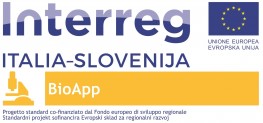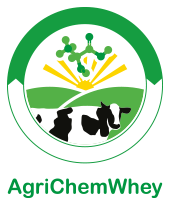Bioapp project
Project concluded
Overall Objective of the Project:
The main objective of the project was to establish a new technology platform by strengthening cooperation between research organizations and key economic stakeholders to accelerate the development of pilot technology in the field of advanced biopolymers. The project has made a positive contribution to the specific objectives of the cross-border cooperation program, namely through the mentioned technological platform, which paves the way for innovative business initiatives and encourages the necessary exchange of knowledge, technology and innovation
Project summary:
Global aquaculture and shellfish production currently produces over 10 million tonnes of biomass per year, generating a considerable amount of waste in the form of shells and exoskeletons. These abundant yet under-utilised renewable biomasses have enormous potential for the production of advanced materials (biopolymers), and fall within the scope of the Key Enabling Technologies and the key areas of the Smart Specialisation Strategies identified by the “New Materials, Green Chemistry and Health” program.
Numerous research institutes and companies are actively involved in various biopolymer product development stages; however, the synergies and technology transfer dynamics between them are still insufficient.
To overcome these obstacles, the BioApp project developed a new supra-regional technology platform and combined the complementary knowledge and skills of partners, with a vision to promote solutions, development and applicability of commercially interesting highly innovative biopolymers and biomaterials.
Through a regional cooperation effort involving complementary and interdisciplinary partners, ranging from the academic world (UNITS), to public and private research institutes (COBIK, KI), start-ups (BIOPOLife) and medium-sized companies (ACIES BIO), the project provided an integrated solution that uses natural resources to produce materials designed to improve people’s quality of life. All project partners benefit from the developed pilot technology for technology transfer, social and eco-innovation and strengthen links and synergies between companies, research and development centres and in the field of higher education. This trans-regional platform facilitates the integration of new stakeholders through the development of the technology and the commercialisation of the relative product, according to the “economy of closed material cycles” principle, as regards the new business models for a circular economy.
Contacts: Uros Novak, Coordinator: uros.novak@ki.si







